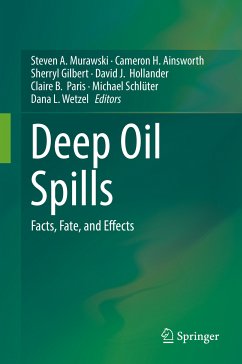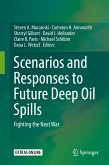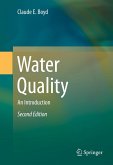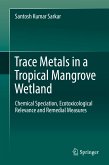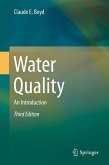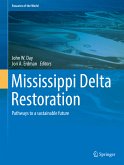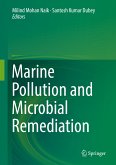Deep Oil Spills (eBook, PDF)
Facts, Fate, and Effects
Redaktion: Murawski, Steven A.; Wetzel, Dana L.; Schlüter, Michael; Paris, Claire B.; Hollander, David J.; Gilbert, Sherryl; Ainsworth, Cameron H.


Alle Infos zum eBook verschenken

Deep Oil Spills (eBook, PDF)
Facts, Fate, and Effects
Redaktion: Murawski, Steven A.; Wetzel, Dana L.; Schlüter, Michael; Paris, Claire B.; Hollander, David J.; Gilbert, Sherryl; Ainsworth, Cameron H.
- Format: PDF
- Merkliste
- Auf die Merkliste
- Bewerten Bewerten
- Teilen
- Produkt teilen
- Produkterinnerung
- Produkterinnerung

Hier können Sie sich einloggen

Bitte loggen Sie sich zunächst in Ihr Kundenkonto ein oder registrieren Sie sich bei bücher.de, um das eBook-Abo tolino select nutzen zu können.
The demand for oil and gas has brought exploration and production to unprecedented depths of the world's oceans. Currently, over 50% of the oil from the Gulf of Mexico now comes from waters in excess of 1,500 meters (one mile) deep, where no oil was produced just 20 years ago. The Deepwater Horizon oil spill blowout did much to change the perception of oil spills as coming just from tanker accidents, train derailments, and pipeline ruptures. In fact, beginning with the Ixtoc 1 spill off Campeche, Mexico in 1979-1980, there have been a series of large spill events originating at the sea bottom…mehr
- Geräte: PC
- ohne Kopierschutz
- eBook Hilfe
- Größe: 21.36MB
![Scenarios and Responses to Future Deep Oil Spills (eBook, PDF) Scenarios and Responses to Future Deep Oil Spills (eBook, PDF)]() Scenarios and Responses to Future Deep Oil Spills (eBook, PDF)73,95 €
Scenarios and Responses to Future Deep Oil Spills (eBook, PDF)73,95 €- -28%11
![Water Quality (eBook, PDF) Water Quality (eBook, PDF)]() Claude E. BoydWater Quality (eBook, PDF)61,95 €
Claude E. BoydWater Quality (eBook, PDF)61,95 € ![Trace Metals in a Tropical Mangrove Wetland (eBook, PDF) Trace Metals in a Tropical Mangrove Wetland (eBook, PDF)]() Santosh Kumar SarkarTrace Metals in a Tropical Mangrove Wetland (eBook, PDF)73,95 €
Santosh Kumar SarkarTrace Metals in a Tropical Mangrove Wetland (eBook, PDF)73,95 €![Water Quality (eBook, PDF) Water Quality (eBook, PDF)]() Claude E. BoydWater Quality (eBook, PDF)48,95 €
Claude E. BoydWater Quality (eBook, PDF)48,95 €![Mississippi Delta Restoration (eBook, PDF) Mississippi Delta Restoration (eBook, PDF)]() Mississippi Delta Restoration (eBook, PDF)113,95 €
Mississippi Delta Restoration (eBook, PDF)113,95 €![Marine Pollution and Microbial Remediation (eBook, PDF) Marine Pollution and Microbial Remediation (eBook, PDF)]() Marine Pollution and Microbial Remediation (eBook, PDF)129,95 €
Marine Pollution and Microbial Remediation (eBook, PDF)129,95 €![Eutrophication and Oligotrophication in Japanese Estuaries (eBook, PDF) Eutrophication and Oligotrophication in Japanese Estuaries (eBook, PDF)]() Eutrophication and Oligotrophication in Japanese Estuaries (eBook, PDF)73,95 €
Eutrophication and Oligotrophication in Japanese Estuaries (eBook, PDF)73,95 €-
-
-
Dieser Download kann aus rechtlichen Gründen nur mit Rechnungsadresse in A, B, BG, CY, CZ, D, DK, EW, E, FIN, F, GR, HR, H, IRL, I, LT, L, LR, M, NL, PL, P, R, S, SLO, SK ausgeliefert werden.
Hinweis: Dieser Artikel kann nur an eine deutsche Lieferadresse ausgeliefert werden.
- Produktdetails
- Verlag: Springer International Publishing
- Seitenzahl: 611
- Erscheinungstermin: 29. Juni 2019
- Englisch
- ISBN-13: 9783030116057
- Artikelnr.: 57064675
- Verlag: Springer International Publishing
- Seitenzahl: 611
- Erscheinungstermin: 29. Juni 2019
- Englisch
- ISBN-13: 9783030116057
- Artikelnr.: 57064675
- Herstellerkennzeichnung Die Herstellerinformationen sind derzeit nicht verfügbar.
